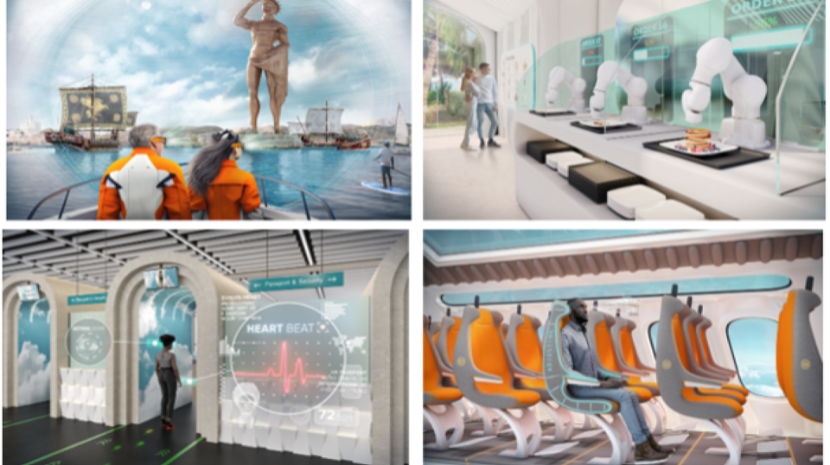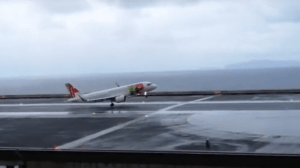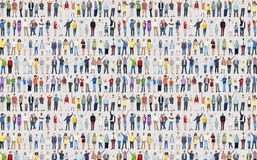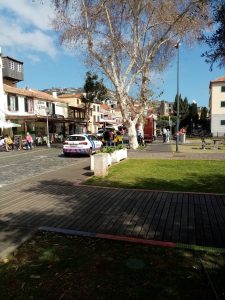3D printing food buffet, heartbeat passports, and time travel experiences: A new report published by EasyJet this week reveals predictions about how people will be able to travel and enjoy their holidays 50 years from now. The report, promoted by easyJet airline, predicts innovations in airports, air travel, accommodation, and travel experiences.
“EasyJet 2070: Report on the Future of Travel” is authored by a group of futurists and academics including Professor Birgitte Andersen of Birkbeck, University of London and CEO of the Big Innovation Centre, Melissa Sterry, design scientist and complex systems theorist, renowned futurists Shivvy Jervis and Patrick Dixon, as well as the Director of Transport Systems at Cranfield University, Professor Graham Braithwaite, and by Nikhil Sachedva, responsible for aerospace and defense and sustainable aviation at the consultancy Roland Berger.
The highlights of the “EasyJet 2070: Report on the Future of Travel”:
The journey to the airport and the air experience can be revolutionized by technological advances:
- Heartbeat and biometric passports can replace traditional passports, speeding up airport security. Like fingerprints and iris, each person’s cardiac signature is unique.
- Ergonomic and biomimetic sensory aircraft seats can become commonplace not only on sophisticated first-class flights. Using smart materials that adapt to passengers’ shape, height, weight, and body temperature, ergonomic and biomimetic sensory seats can provide a better, personalized, and comfortable flight experience.
- In-flight entertainment can be streamed directly into the passenger’s eyes via optoelectronic devices, no longer requiring screens on board or downloading movies before the flight.
- e-VTOL air taxis can do away with traditional transport to the airport, with 85% of passengers using e-VTOLs to get from their homes to the terminal on a faster and more convenient journey than ever before.
With technological advances, we may see significant advances in the accommodation experience:
- 3D printing of hotel buffet food, allowing tourists to 3D print what they want to eat for breakfast, lunch, and dinner, reducing food waste.
- Underground hotels, built on the earth’s fabric, are super energy efficient and in harmony with the environment.
- Smart hotel rooms with prefabricated beds with the desired firmness, room temperature, and playback of the guest’s favorite music.
- Recyclable holiday clothes in 3D printing on arrival at the hotel, eliminating the need to bring suitcases and quick holiday clothes, since travellers can print the necessary clothes in their hotel rooms, perfectly adjusted to their body and style, and still recycle the materials for the next guest to enjoy.
Innovations in the experiences and activities in the destination offered to travelers:
- Tourists will be able to have time travel experiences, wearing haptic costumes at historic sites that allow them to immerse themselves in living environments of the past. For example, travellers can marvel at the ancient world by going to the Colossus of Rhodes during a stroll in the city of Rhodes, or cheer among the crowds of the original Olympic Games in Ancient Greece.
- Through bionic and meta holiday previews, people will be able to experience locations before booking their holiday.
- Travellers can come to enjoy underwater “sea-faris”, aquatic adventures aboard submarines in the depths of the sea, to discover marine life in underwater marine parks.
- Introduction of hearing aids in the local language, allowing people to speak the local language and establish even deeper relationships with locals around the world.
- E-foilling, cable sky, and flyboarding can become common activities for rent on beaches, taking water sports to the next level.
Digital images based on four of the experts’ predictions show what travel could look like by 2070.
At the airport, images show the use of biometric heartbeat passports, where an individual’s unique cardiovascular patterns become their personal identification.
On board, passengers are pictured travelling in maximum personalised comfort, thanks to biomimetic sensory aircraft seats, with in-flight entertainment transmitted directly to their eyes via on-board optoelectronic technology.
In the destinations, tourists can be seen getting close to the Colossus of Rhodes, the legendary 30-meter statue of the sun god Helios, as it would have been 2,000 years ago, through “time travel” experiences, allowed by haptic costumes and the use of virtual reality.
The final image depicts the future of the hotel buffet, depicting 3D printers that create personalised breakfast menus, eliminating unnecessary waste and providing a complete choice on vacation.
British consumers were asked to choose from among the experts’ predictions the ones they would most like to see come true. The research revealed that biometric heartbeat passports and vacation experiences with time travel are the travel advances that people would most like to see happen by 2070.
Nine in ten respondents (90%) said they are enthusiastic or intrigued by technological advances that could alter their holiday within 50 years.
Speaking about the report, easyJet CEO Johan Lundgren said:
“Innovation has always been in easyJet’s DNA. More than 25 years ago, we changed how people travelled, and with our pioneering spirit, we’ve led the way ever since. Whether through digital, engineering, or operational innovations, we continue every day to work to make travel easier and more accessible to our customers. The results of this report are incredibly exciting and I know we will continue to see easyJet lead the way in making many of these predictions a reality for tourists of the future.”
Lead rapporteur Birgitte Andersen, from Birkbeck, University of London, explained: “My work revolves around innovation and it is clear that through emerging technologies, the world of travel will be very different in the year 2070, but all changes are positive improvements and will change our lives for the better.”
Samantha Gannon
info at madeira-weekly.com






